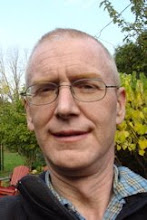In my early research into knowledge transfer the idea of story telling and narrative came up. But how do I add narrative to computer code? Narrative is a way older workers can relate their knowledge to younger workers. I was just reading the introduction to a book about an epic story. The book is
- Van Deusen, Kira. Kiviuq: An Inuit Hero and His Siberian Cousins (Montreal Que.: McGill-Queens University, 2009).
- The book contains an Inuit legend and compares this legend with Siberian aboriginal legends. This is how stories and lessons of life would be passed down in Inuit culture.
I had also thought to read this book to help my music making but the book and story are not for telling thus to avoid plagiarism I will not read this book. I will simply be inspired by Kira's introduction where she explains briefly that she uses performance art, and music with story telling. She also explains that the elders who told her Kiviuq had given her alone permission to tell this epic. I like these ethics and will respect them.
I also thought, as I read the book, of aboriginal studies but have only read a few aboriginal studies books and will not read this one.
